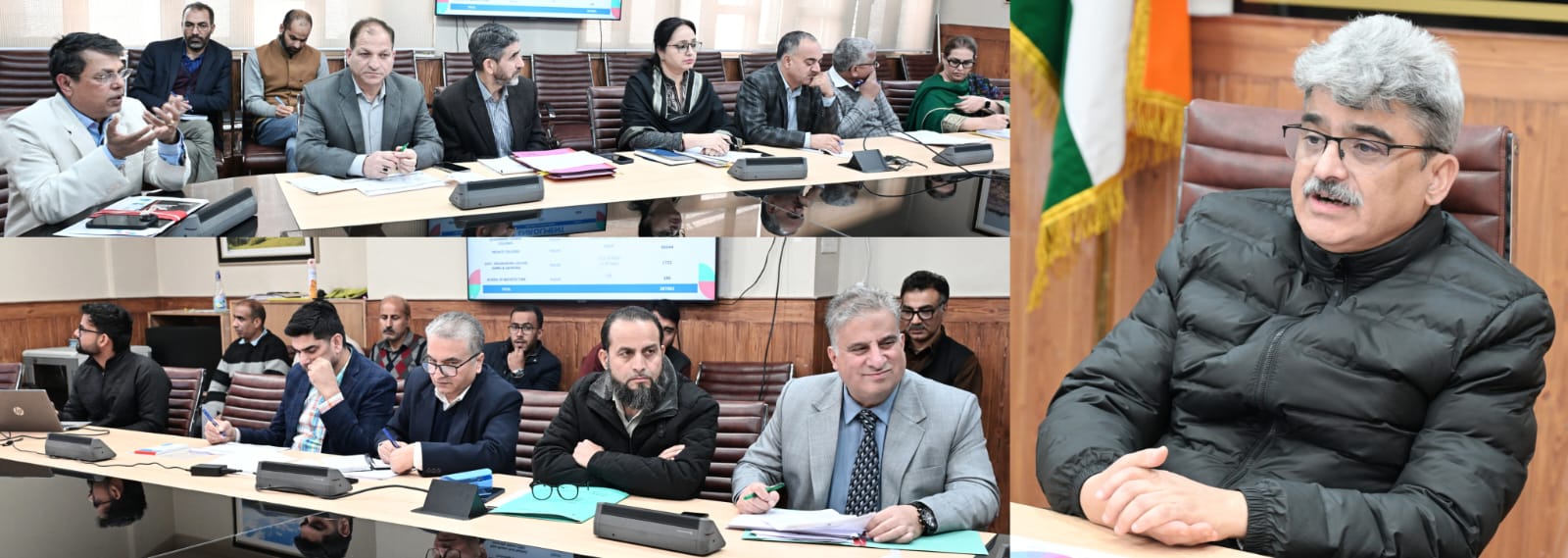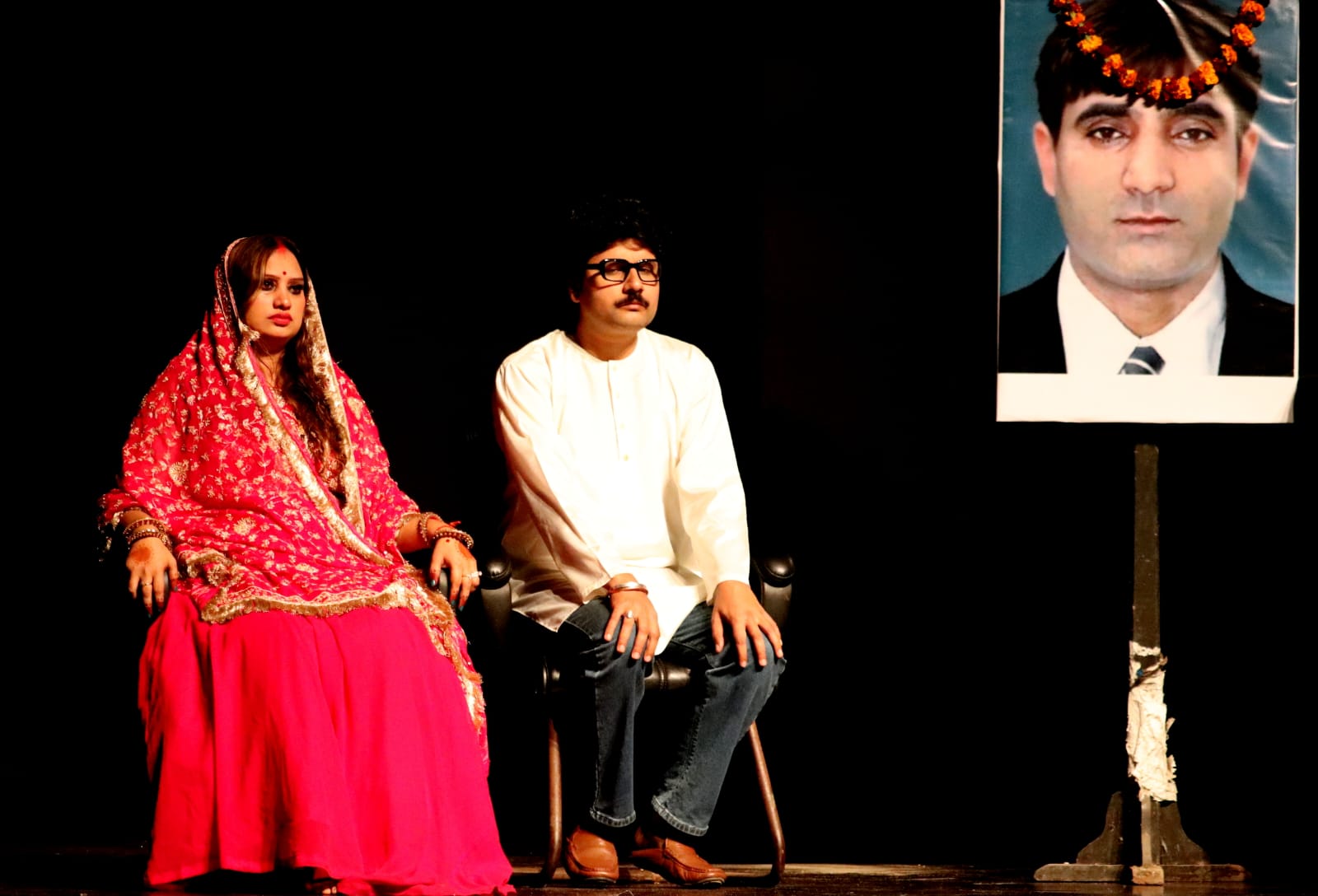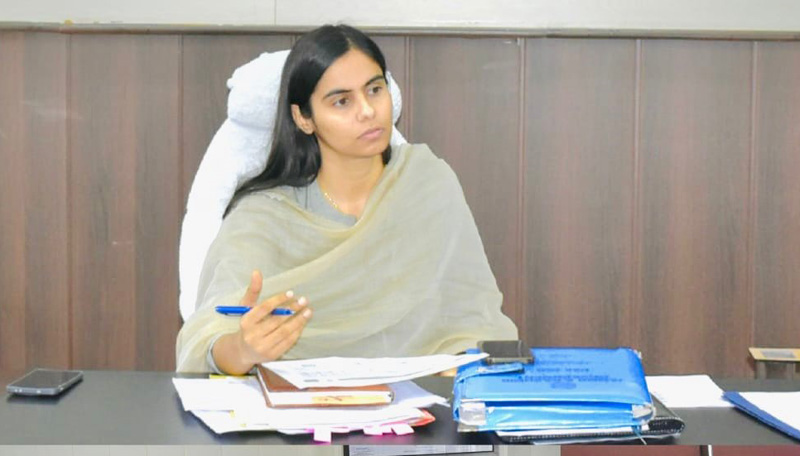SRINAGAR: Chief Secretary Atal Dulloo yesterday emphasized the need for a long-term, forward-looking roadmap to transform the higher education sector in Jammu and Kashmir.
Chairing a high-level review meeting, the Chief Secretary directed the Higher Education Department to formulate a comprehensive 5–10-year strategic plan aimed at elevating the standard of higher education and aligning it with modern academic, technological, and market demands.
The meeting was attended by Additional Chief Secretary, Higher Education Department, Shantmanu; Director Colleges; Managing Director, RUSA; and other senior officers of the department.
Stressing the importance of relevance and innovation, Dulloo called for an immediate revision of curricula to make it more skill-oriented, industry-linked, and aspirational. He said outdated courses must be redesigned, and new, market-driven programmes introduced to ensure graduates are equipped for emerging career opportunities.
He observed that the true objective of higher education is to produce a futuristic and employable generation, rather than one struggling for jobs post-graduation. He urged the Department to seek guidance from the Union Ministry of Education, NITI Aayog, and the Higher Education Council to strengthen policy alignment and institutional capacity.
Underscoring the importance of human resource management, the Chief Secretary directed the Department to focus on motivating, training, and supporting staff to enhance institutional efficiency. He noted that building institutional capacity and nurturing a skilled workforce are essential for achieving educational excellence.
Presenting a progress report, ACS Shantmanu highlighted significant improvements in infrastructure, financial management, and student enrolment across the Union Territory. The total enrolment in higher education institutions in J&K stands at 2,87,663 students—including 9,274 in the University of Jammu, 13,375 in the University of Kashmir, 1,98,392 in Government Degree Colleges, and 56,644 in private colleges.
He informed that J&K has been among the first UTs to implement the National Education Policy (NEP) 2020, successfully adopting the Four-Year Undergraduate Programme (FYUGP) with 58 major courses under the 3+1 Honours model. The FYUGP framework provides multiple entry-exit options and introduces the Academic Bank of Credits (ABC) for seamless academic mobility and credit transfers.
The Department has prioritized infrastructure expansion and modernization with a Capex budget of ₹500 crore, of which ₹270.61 crore has been released and ₹80.68 crore utilized through BEAMS. Out of 160 targeted works, 30 have been completed, including major projects like new classrooms, multi-purpose halls, hostel and science blocks, auditoriums, and administrative buildings.
Additionally, 18 libraries are being digitized and RFID-tagged, 18 playgrounds are under development, 9 research hubs are progressing, and 3 new library blocks are under construction.
Under RUSA and PM-USHA, the Department reported strong performance, completing 38 out of 74 institutional projects across all phases (RUSA 1, RUSA 2, and PM-USHA). As of October 30, 2025, cumulative expenditure stands at ₹430.40 crore—a remarkable 94% utilization of the ₹455.88 crore released by the Central and UT Governments.
To ensure timely completion of all ongoing projects by March 2026, the Department has sought an additional ₹251.92 crore from the Government of India.
Reaffirming the government’s commitment to academic excellence and student-focused reforms, the Chief Secretary directed the Department to adopt a mission-oriented approach to ensure that higher education in Jammu and Kashmir emerges as a national model of quality, innovation, and employability in the coming years.













